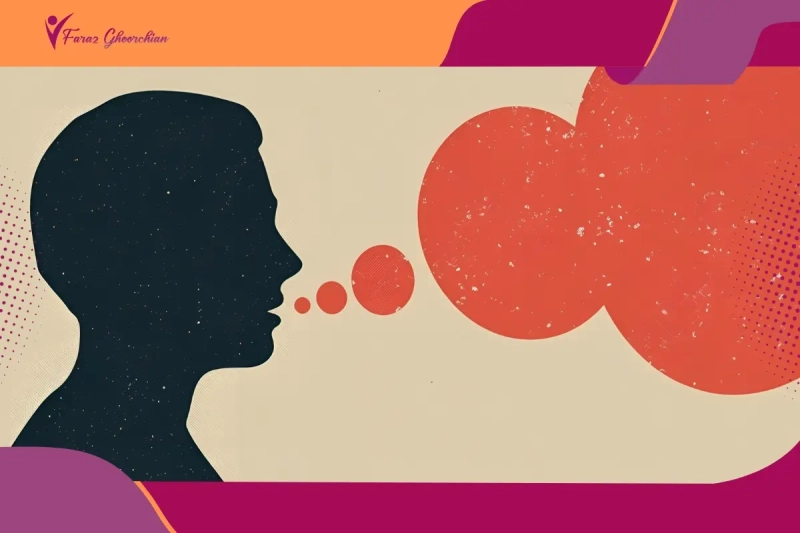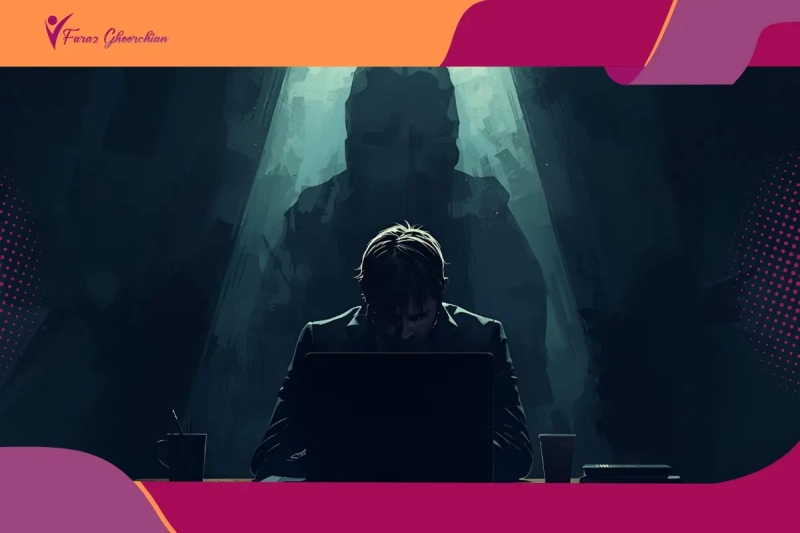- 1. Introduction: The Link Between Loneliness, Unemployment and Sexual Desire
- 2. Why Loneliness Can Increase Sexual Desire
- 3. Unemployment and Sexual Frustration: A Hidden Connection
- 4. Psychological and Hormonal Changes During Isolation
- 5. Emotional Loneliness and Sexual Craving: Understanding the Drive
- 6. Excessive Libido and Mental Stress: Recognizing Emotional Distress
- 7. Common Behavioral Responses: Pornography Use and Impulses
- 8. Healthy Coping Strategies for Sexual Urges
- 9. Mindfulness and Self-Control: Techniques for Managing Desire
- 10. When to Seek Help: Therapy and Building Support
- 11. Conclusion
- 12. FAQs
Introduction: The Link Between Loneliness, Unemployment and Sexual Desire
Anyone who has spent time alone or faced the stress of losing a job knows how quickly sexual thoughts can start to surface. It’s actually pretty common for loneliness increasing sexual desire to take people by surprise, or for unemployment and sexual frustration to quietly shape daily routines. These feelings are often a sign that your mind and body are looking for comfort and genuine connection. Noticing these patterns is the first step to finding healthier ways to cope.
Why Loneliness Can Increase Sexual Desire
If you have ever caught yourself daydreaming about intimacy or noticing your thoughts drifting more when you are alone, you are not strange or broken. Loneliness increasing sexual desire is something most people do not expect until they find themselves right in the middle of it. For a lot of us, those quiet evenings when the silence almost feels heavy can bring out feelings we did not see coming. It seems like the mind and body are wired to crave connection, and when you are not getting enough from friends or family, you may find your sexual needs becoming louder and harder to ignore. The longing for touch or even simple conversation sometimes blends with urges you would not usually have.
Science supports this reality. Research shows that when we feel isolated, our brains release more chemicals linked to pleasure and comfort. That is a big reason social isolation and sexual need often show up together. Realizing this connection is actually helpful. It shows that these feelings are a natural response to unmet emotional needs, not just random urges. With time and self-awareness, it is possible to begin turning loneliness into personal transformation, using that emotional energy to grow in ways that truly matter. Understanding this pattern helps you start finding healthier ways to cope with both loneliness and desire.
Unemployment and Sexual Frustration: A Hidden Connection
Losing a job shakes up your whole world in ways most people never talk about. When I lost my job, I didn’t expect those quiet mornings to feel so heavy or for my mind to wander as much as it did. Suddenly, unemployment and sexual frustration became something real for me, not just a theory in a psychology article. It felt like with each passing day, my energy had nowhere to go and my thoughts circled back to things I could control, like fantasies or sexual urges.
I also noticed how male loneliness and sexual impulses seemed stronger when I didn’t have my usual work routine or social contact. Friends have told me that for women, female unemployment and sexual behavior changes in subtle ways too, sometimes as a way to reclaim a sense of worth or comfort. Looking back, I realize these shifts were my brain’s way of asking for support and connection. Recognizing them is the first step to finding healthier ways to cope.
Psychological and Hormonal Changes During Isolation
I never realized how much isolation could mess with my head until I found myself stuck at home for weeks. It honestly caught me off guard how my moods bounced around and my cravings sometimes felt out of control. Turns out, it is not just in my imagination. Experts point out that hormonal changes during isolation are actually very real. When you are cut off from regular social interaction, your body can start pumping out extra cortisol, the stress hormone, while dialing back on things like testosterone and estrogen. This weird chemical cocktail sometimes leaves you restless, anxious, or more sensitive to every little urge.
A question I kept asking myself was, is increased libido a sign of emotional distress? The more I read and talked to others, the clearer it became that yes, it often is. Our brains look for comfort when we are stressed or lonely, and sexual thoughts can be one way to cope. Understanding these shifts made me feel less alone and helped me start figuring out better ways to respond.
Emotional Loneliness and Sexual Craving: Understanding the Drive
There’s something about emotional loneliness that can quietly turn up the volume on our most private cravings. I’ve noticed in my own life that when genuine connection feels out of reach, sexual urges sometimes pop up almost as a substitute. This isn’t just about physical needs; it’s really about the longing for closeness and validation. Research shows that emotional loneliness and sexual craving often go hand in hand, especially during times when support is missing or self-worth takes a hit.
People don’t always realize that the brain can mix up signals for comfort, love, and desire, which can explain why psychological effects of being unemployed might trigger unexpected or stronger urges. Instead of judging yourself, it helps to understand that these feelings are often a natural response to unmet emotional needs. Recognizing this link makes it easier to respond with compassion and seek out healthier ways to meet those deeper needs for connection.
Excessive Libido and Mental Stress: Recognizing Emotional Distress
Sometimes, an uptick in sexual thoughts can sneak up during periods of stress or uncertainty. When I was struggling with anxiety and feeling lost in my daily routine, I noticed my desire would spike at the most random times. It made me wonder if my mind was using these urges as a distraction from what was really bothering me. Experts say excessive libido and mental stress are often linked, especially when emotional needs are ignored or pushed aside. Stressful situations like job loss or isolation can make your brain seek out any form of relief, even if it is just temporary.
The mental health effects of increased libido are not talked about enough. For some, these stronger urges can feel confusing or even overwhelming, adding more pressure on top of what you are already feeling. If you find that your sexual desire is suddenly much higher than usual, it may be worth taking a closer look at your emotional well-being. Paying attention to these signals can help you spot emotional distress early and motivate you to seek out healthier coping strategies.
Common Behavioral Responses: Pornography Use and Impulses
When loneliness or job loss starts to weigh on you, it is surprisingly easy to fall into habits that you might not have dealt with before. In my own experience and from what others have shared, stress has a way of nudging us toward choices that promise quick relief. It helps to understand that these habits are often part of a larger behavioral response to loneliness and desire, where the brain looks for fast comfort to ease emotional discomfort. Some of the most common reactions include these:
- Increased pornography use during unemployment often happens because there is suddenly more free time and fewer outside distractions. What may start as a harmless way to pass time can turn into a daily routine that is hard to stop.
- Coping with desire when single and unemployed can feel especially difficult. With fewer healthy outlets and little support, it is tempting to act on impulses more often, whether that means excessive masturbation or looking for hookups just to fill the emptiness.
- Losing a daily routine or social structure can make self-control feel out of reach, so resisting sexual urges takes more effort than usual.
- Over time, these habits can leave you feeling guilty or even more isolated, making the cycle harder to escape.
Noticing these behaviors is a step toward breaking the cycle and finding healthier ways to respond.
Healthy Coping Strategies for Sexual Urges
Healthy coping strategies for sexual urges are something I had to figure out for myself after a long period of feeling lost and disconnected. Not everything works for everyone, but these approaches honestly made a difference in my life:
- Getting outside for a walk or a quick jog is underrated. For me, moving my body proved that the role of aerobic exercise in reducing sexual arousal is real, and it clears my head too.
- Sticking to some kind of daily schedule kept me from slipping into old habits. Dealing with sexual urges during loneliness became less overwhelming once I set small goals for each day.
- I called friends or messaged a group chat when things got tough, which helped me feel less isolated.
- Trying new hobbies like sketching or even baking sometimes gave my mind a place to rest.
- Eating better and making sure I got enough sleep helped more than I expected.
Figuring out what works for you takes time, but every small step forward builds real confidence and control.
Mindfulness and Self-Control: Techniques for Managing Desire
Learning to manage sexual desire is not always easy, but practicing mindfulness and building self-control can really help. These are some of the techniques that made a genuine difference for me and others I know:
- Starting the day with a few minutes of mindfulness for managing loneliness and urges made it easier to spot cravings before they took over.
- Guided breathing or body scan meditations work well for many people. Mindfulness exercises for managing lust are simple to find online, and just ten minutes can shift your whole mindset.
- Writing down what triggers your urges can help you see patterns and stay aware.
- Setting small, specific goals every morning gave me a sense of progress and purpose.
- Practicing gratitude or noting good things in a journal shifted my focus away from cravings.
The more you practice self-control techniques for high sexual desire, the more natural it feels to pause, reflect, and make choices you’re proud of later.
When to Seek Help: Therapy and Building Support
Sometimes, no matter how hard you try, coping on your own just is not enough. If sexual thoughts start to feel out of control or you find your emotional state getting worse, it could be the right moment to look for extra help. Turning to therapy for sexual impulse control is a strong, positive choice. A trained professional can help you get to the root of your urges and guide you with practical steps to manage them.
Reaching out to others is equally important. Finding support for emotional loneliness can come from joining a local group, connecting online, or simply talking honestly with someone you trust. These small actions can lift some of the weight and show you that others understand what you are facing. Remember, sexual control is not only about discipline. Real change often happens when you have the right support and know that you are not facing these challenges alone.
Conclusion
Looking back on my own experience, it’s clear that loneliness increasing sexual desire and unemployment and sexual frustration are struggles many of us quietly face. It took me a while to admit just how much these feelings were shaping my days. If you find yourself in a similar place, be gentle with yourself. Even small steps like reaching out or changing your routine can help you find steadier ground.
FAQs
1- Why does loneliness increasing sexual desire happen to so many people?
Being alone often heightens emotional needs, so the mind looks for comfort in physical cravings. This is a common response to unmet connection.
2- Can unemployment and sexual frustration affect my mental health?
Yes, both can lead to more stress and anxiety, making it harder to manage urges and maintain self-control.
3- What healthy coping strategies for sexual urges actually work?
Regular exercise, mindful routines, talking with friends, and setting small goals each day all help you stay balanced and focused.
















